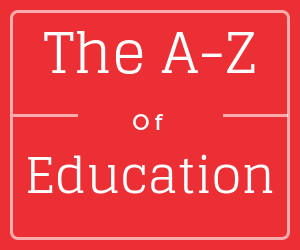Understanding the 4 Main Schools of Philosophy: Principle of Pragmatism

Understanding philosophy is important for educators not only so that they possess an individual philosophy but gain more awareness to the philosophies of their students and administrators. In this series on the four main schools of philosophies idealism, realism, postmodernism, and pragmatism will be reviewed to assist with understanding the elements of philosophy. This article focuses on pragmatism.
Pragmatism can be defined literally as work. A more precise definition is that, using our ideas with a predefined purpose, we base actions on those ideas to determine whether or not the purpose can be achieved through them. During this process, we encounter consequences, which are of varying desirability. Pragmatists believe we should select the ideas, actions, and consequences with the most desirable outcome as well as learn from previous experiences to ensure that we apply the same ideas and actions in later situations to achieve similarly desirable consequences. Pragmatism focuses on dynamic problem solving, rather than learning the basics.
The most notable pragmatist philosophers are Charles S. Peirce (1839–1914), William James (1841–1910), and John Dewey (1859–1952). Pierce, a mathematician, speculated that our actions are a result of our hypotheses about life. As our world is constantly changing, so are our decisions on how we should act. Pierce maintains that we should continue to do the best we can to actively improve on our actions, so that we gain the ability to generalize how the world works.
William James viewed ideas as stemming from a human need to choose a possible action for a circumstance. The conclusions that we draw from the result of those actions guide our future decisions. The beliefs that we gather as outcomes of the decisions help us determine our personal set of rules regarding right and wrong.
John Dewey is the creator of experimentalism and the problem-solving method. Experimentalism conjectured that the Earth is still in process and is still becoming, so that there is no absolute truth. According to experimentalism, people think to solve problems, and Dewey listed the steps to a method used to search for absolute truth. This method is known as the problem-solving method, or inductive reasoning:
1. Recognize that there is a problem.
2. Clearly define the problem.
3. Suggest possible solutions.
4. Consider possible consequences.
5. Observe and experiment to either accept or reject the idea as an absolute truth.
In short, while education is to prepare students for the future, students live in the moment. Pragmatist educators acknowledge the central role of education in transferring culture to students, because the school may be seen as a coordinating environment between home life and the world at large. In school, students can flex their social and intellectual muscles in a relatively controlled environment, subject to guidance and mediation by teachers. Students learn and observe consequences, but the school environment also offers a chance for teachers to guide individual students to reflect on these consequences and determine which are the most desirable.
Pragmatist educators also value flexibility in teaching methods, to accommodate individual and special needs. Education leverages the interests of the individual, promoting teachers to instruct their students on how their personal interests are connected to the body of organized knowledge, scientific and otherwise, already existing in the world. Problem solving is central to the philosophy of pragmatism and takes place in a real-world setting or using real-world scenarios.
Understanding the principle of pragmatism is crucial for developing a successful teaching philosophy and creating a classroom environment that promotes diversity and culture. What does your curriculum and classroom tell your students? If you are unsure review your teaching methods while reviewing the components of this article and continue reading the other sections of this series to understand the schools of thought pertaining to philosophy.






